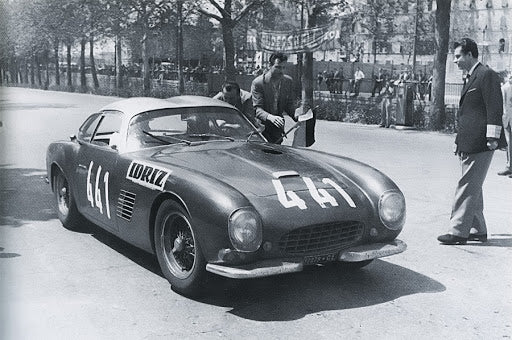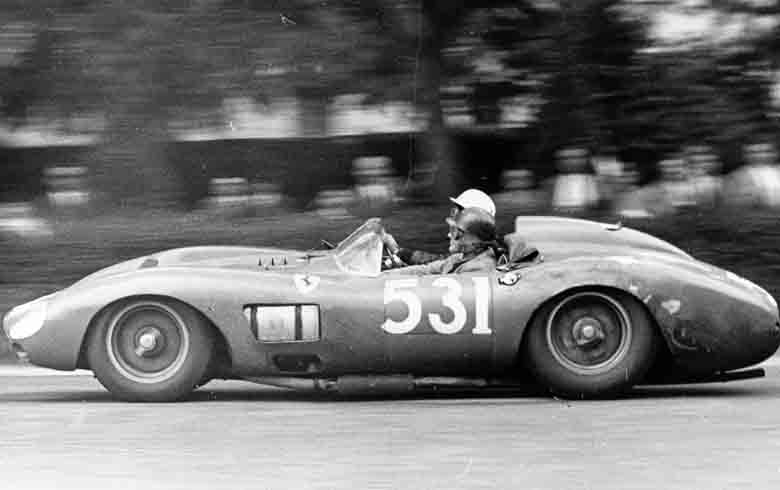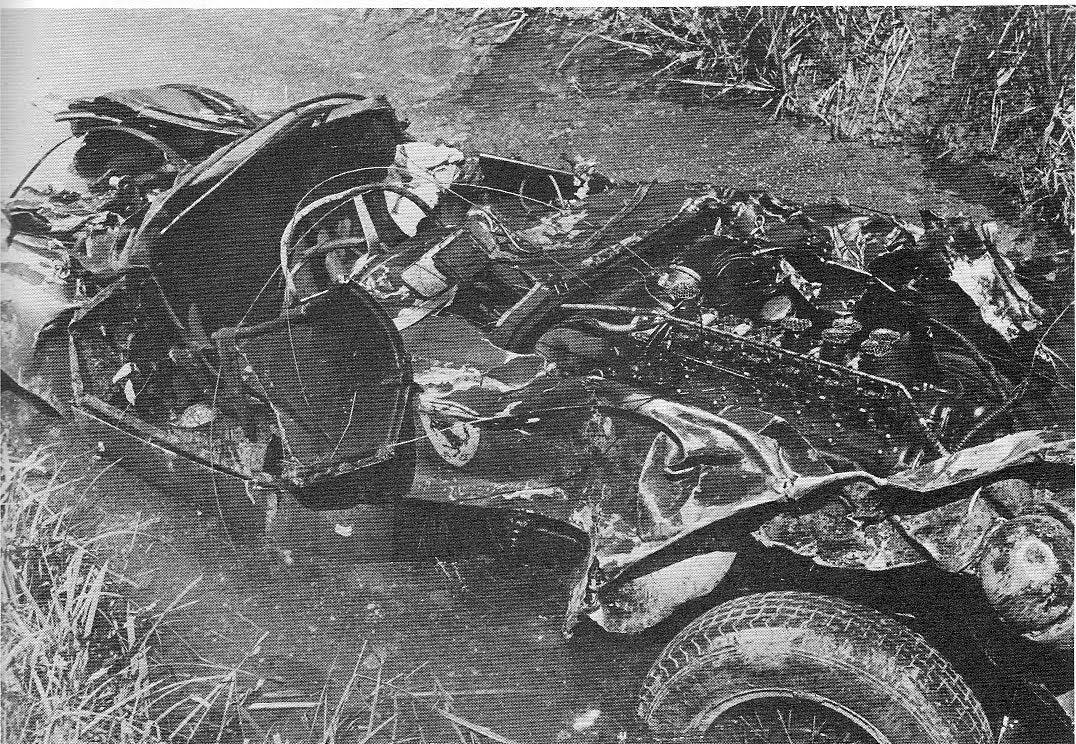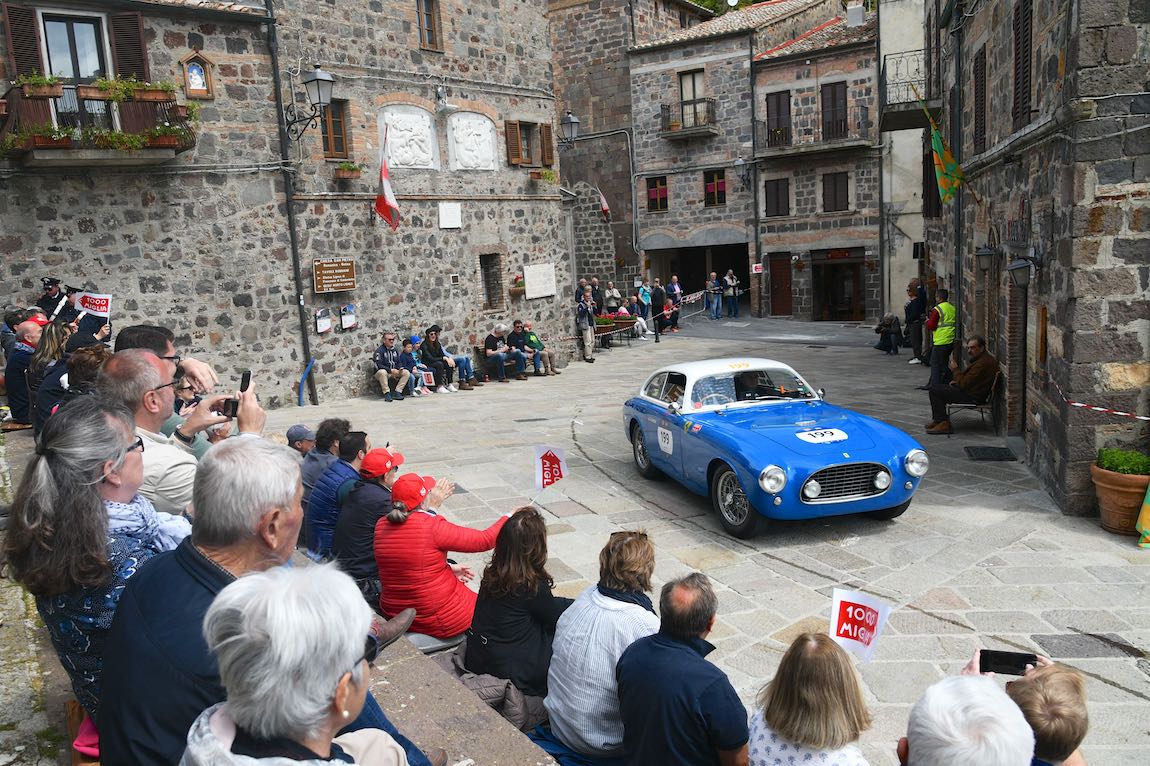At its peak, the Mille Miglia (meaning 'thousand miles') stood as one of the world's most iconic automobile races, with drivers speeding through the picturesque Italian countryside. Sadly, it was canceled forever following a tragic crash in 1957.
For those who haven't watched Ferrari, The Movie - beware of spoilers!
Mille Miglia

Unlike endurance races at Le Mans or Daytona, the Mille Miglia is a race against the clock rather than against other cars. Each car was released at one-minute intervals, with smaller, lower displacement cars starting first.
The first event was held in 1927, organized in response to the Italian Grand Prix being moved from Brescia (the organizer's hometown) to Monza. 'Mille Miglia' translates to 'thousand miles,' which roughly represented the total length of the course.
The 1957 race

The 24th edition of the Mille Miglia took place on May 11-12, 1957, and served as Round 3 of the World Sports Car Championship season. Scuderia Ferrari, along with several privateers, fielded 15 cars, including a Ferrari 335 S with the number 531, driven by Spanish racer Alfonso de Portago and his navigator, Edmund Nelson.
The race witnessed an impressive victory by Scuderia Ferrari's Piero Taruffi, who completed the challenging course in 10 hours, 27 minutes, and 47 seconds. He crossed the finish line with a comfortable 3-minute lead over his teammate, the German driver Wolfgang von Trips. The podium was rounded out by Olivier Gendebien and Jacques Washer, securing a remarkable 1-2-3 finish for Scuderia Ferrari.
Crash

De Portago and Nelson set out from Brescia at 5:31 AM, maintaining a brisk pace. However, approximately 70 kilometers from the finish line, disaster struck in the town of Guidizzolo. The front tire of their Ferrari 335 S suddenly exploded, causing Portago to lose control of the car. The vehicle collided with a telephone pole, still moving at great speed. The impact sent the car airborne over a stream of water, tragically striking several spectators in the process. It eventually landed back on the road, where it hit more onlookers before sliding off the road and into another nearby stream.
The crash resulted in the immediate fatalities of both de Portago and Nelson. Additionally, ten spectators, including five children, lost their lives, while around 20 others sustained injuries.
Aftermath
Three days after the race, the Italian government made the decision to terminate the Mille Miglia and instituted a ban on all motor racing events on public roads.
The crash investigation revealed that Portago's intense determination to win had led him to delay replacing a worn tire. Legal action was taken against both Scuderia Ferrari and the tire manufacturer, and even Enzo Ferrari himself faced manslaughter charges. However, the case was ultimately dismissed in 1961.

The Mille Miglia briefly made a return as a rally from 1958 to 1961. In 1977, it was resurrected as a historic event exclusively for pre-1957 race cars that had previously participated in or registered for a Mille Miglia race.
Want to ensure you never miss an update?
Be sure to subscribe to the ROSSOautomobili newsletter.





This article leaves out key information. Engineers were brought on to the investigation and they proved the tire pressure was fine and did not blown of its on their own. They were punctured by a cat eye reflector on the road. The car was not mechanically at fault or the tires. This was a freak accident
The movie ‘Ferrari’ gives the cause of the 1957 tire blow-out to an obstacle that was struck, which caused a fatal rupture in the tire. Was that the actual cause of the crash (great movie!)?
Anybody planning to attend the 2024 MM this June 11th? I am planning to participate in my 250GT Boano. Hope to see you in Brescia.
Cannot get registered. Hope you liked my brother Bob’s book, Let me sell you a Ferrari. , SINCERELY, JIM GUARINO…PS MY PIC IS IN THE BOOK TOO
I serviced two Ferraris ( 1 Barchetta, 1 TDF ). This meant following much of the racecourse to keep up with cars through the race in our Mercedes estate. The most amazing and fantastic experience !
Leave a comment